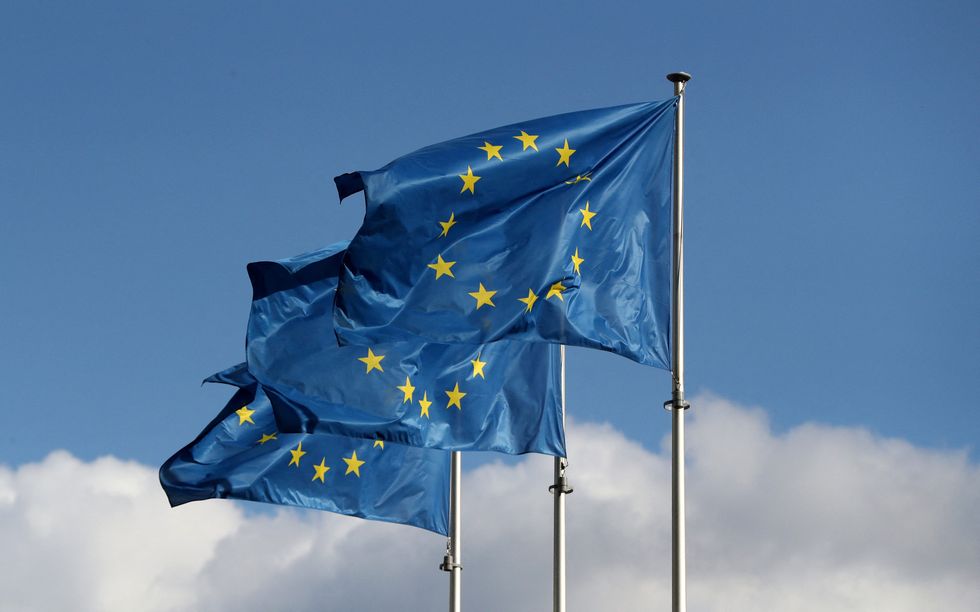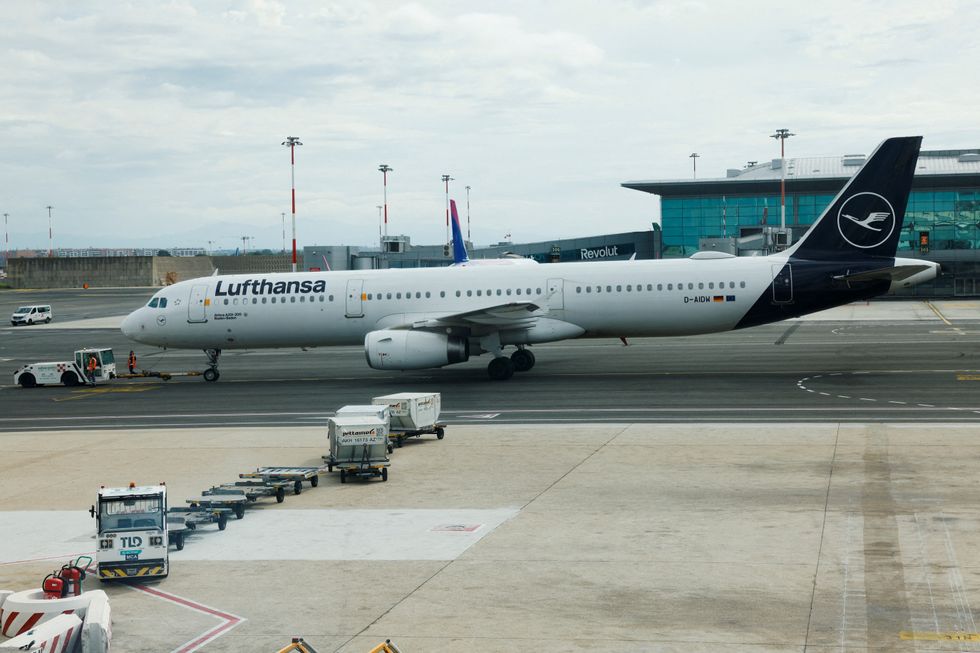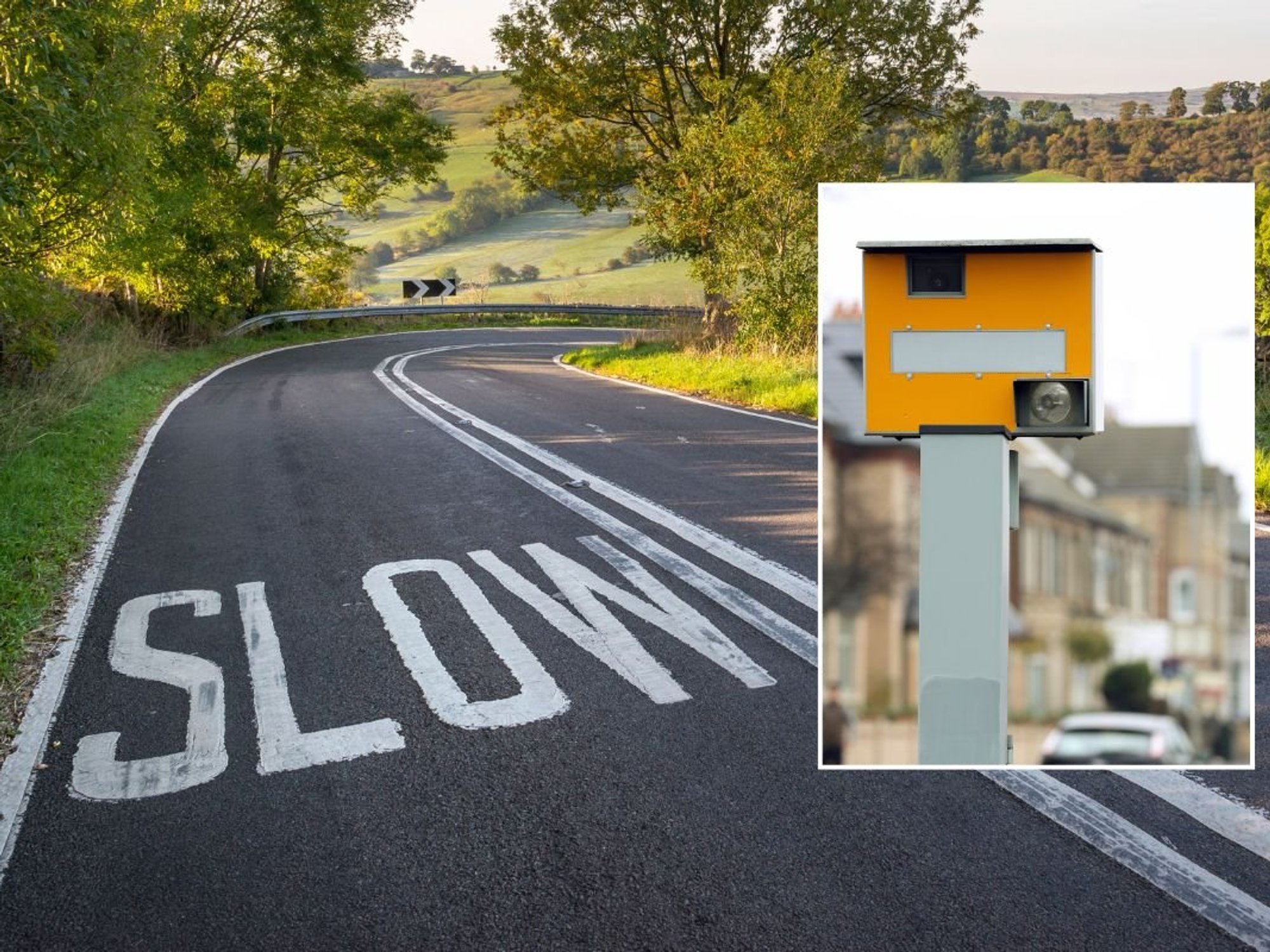Keir Starmer and EU in talks over £100billion global defence bank to rearm UK

Christopher Hope explains new UK-EU deal |
GB News

The model would see partner countries donate around £20billion of its funds and commit to buying military hardware together
Don't Miss
Most Read
Sir Keir Starmer and the European Union are preparing to launch a global defence bank aimed at rearming the West against Vladimir Putin.
The proposed Defence, Security and Resilience Bank (DSR Bank) would pool resources from Western countries to fund weapons, planes and ships, whilst making it easier for defence companies to secure private loans.
Ministers are considering backing this new institution, which could command as much as £100billion in capital and would be funded by Western Governments.
The plans come amid growing concerns that the cost of basic munitions and equipment has increased dramatically since Russia invaded Ukraine, leaving Western countries competing for scarce supplies.
The bank would complement the EU's €150billion (£126.4billion) Security Action For Europe (Safe) fund, with member countries able to use its funding for defence procurement. The institution would also underwrite commercial loans given to defence companies, lowering interest rates.
Treasury and Ministry of Defence officials have begun work on the plans, which could see countries procure defence equipment together to save money. The model would see partner countries donate around £20billion of their funds and commit to buying military hardware together.

The bank could eventually be headquartered in London, allowing countries to move some defence investment spending off national balance sheet
| PAThe bank could eventually be headquartered in London, allowing countries to move some defence investment spending off national balance sheets.
The high cost of private finance for defence companies has been a major driver of inflation in the defence sector since Russia invaded Ukraine. A 155mm artillery shell that cost around £1,700 before the war now costs more than £6,800 because defence companies cannot manufacture them fast enough.
Meanwhile, defence companies including Britain's BAE Systems are unable to secure low-interest loans from private banks because they are considered too risky. For BAE, a lower credit rating translates into a potential extra £90million a year in interest payments – equivalent to 11,000 artillery shells lost to financial drag.
Firms have told military buyers they face a seven-year waiting list for some equipment.

The plans come amid growing concerns that the cost of basic munitions and equipment has increased dramatically since Russia invaded Ukraine, leaving Western countries competing for scarce supplies
| EU civil war looms as France and Germany blast bloc over lavish energy subsidiesThe idea was discussed by Rachel Reeves with European counterparts in Poland last month, with conversations continuing between EU and other Western states since then.
This week's defence and security deal between the UK and EU promised that both sides would "strengthen cooperation and regular consultations on multilateral affairs", paving the way for a defence bank announcement later in the year.
The bank, first proposed by former senior British Nato official Rob Murray, has been discussed by officials and ministers across the G7.
Sources said the bank could be announced as soon as this summer in the UK's defence industrial strategy paper, or in a communique at the Nato summit in June.
Dame Fiona Murray, a professor at MIT and vice-chair of the Nato Innovation Fund, said the UK and its allies "must rearm their economies, not just their militaries" with a "commitment to new financial institutions".
"Britain is a financial superpower. But it has yet to apply that ingenuity to one of its most urgent national priorities," she wrote in The Telegraph.
Labour MP Luke Charters has backed the proposal, saying: "A global defence bank backed by Britain, Nato, and our allies could be the most powerful move for our collective security in almost 80 years."
"This isn't just about security, but also driving growth, building resilience, and delivering a defence dividend for Britain," he added.

The proposed Defence, Security and Resilience Bank (DSR Bank) would pool resources from Western countries to fund weapons, planes and ship
| REUTERSThe DSR Bank would serve three core functions. First, it would provide liquidity, guaranteeing working capital loans to enable commercial banks to offer affordable credit to suppliers.
Second, it would reduce the high cost of capital in the defence sector, helping to reprice risk by passing on its AAA borrowing cost to firms and nations with lower ratings.
Third, it would support industrial readiness by holding assets on its own balance sheet, giving Governments headroom to rearm without immediately increasing public debt.
With a balance sheet of €100billion, of which only 20 per cent would be paid in cash across shareholder nations, it could unlock vast pools of private capital.
More From GB News










